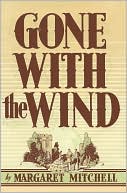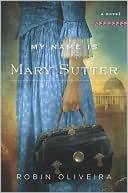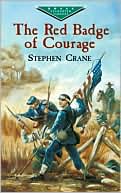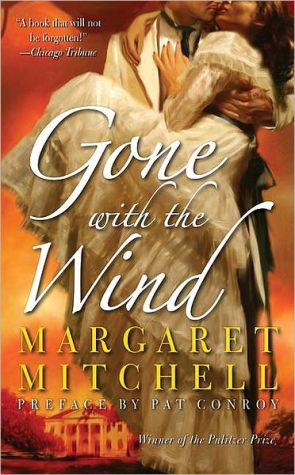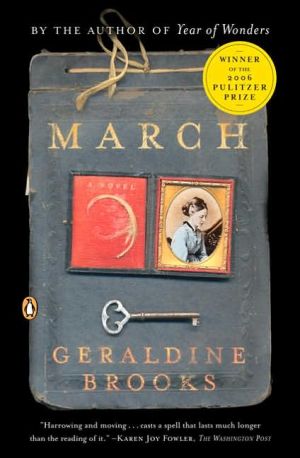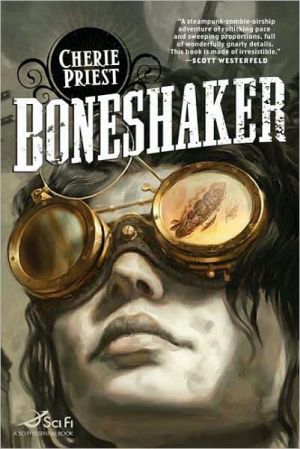On the Occasion of My Last Afternoon
Emma Garnet Tate Lowell, a plantation owner's daughter, grows up in a privileged lifestyle, but it's not all roses. Her family's prosperity is linked to the institution of slavery, and Clarice, a close and trusted family servant, exposes Emma to the truth and history of their plantation and how it brutally affected the slave population.\ Her father, Samuel P. Tate, has an aggressive and overpowering persona that intimidates many people — including Emma. But she refuses to conform to his...
Search in google:
Kaye Gibbons's sixth novel, her first since the dual selection of Ellen Foster and A Virtuous Woman for Oprah's Book ClubT, is the story of Emma Garnet Tate Lowell, a level-eyed Southern lady who comes of age in the years leading up to the Civil War. On the occasion of her 70th birthday, Emma decides the time has come to make a clean breast of the tumultuous events of her long life. "Having survived my father and the war, I am capable of anything," she observes. Born to privilege on the James River plantation of Seven Oaks, Emma grows up increasingly aware that her family's fortunes are inextricably linked to slavery -- an awareness that begins when she witnesses the senseless murder of a slave by her brutal, dominating father. She flees Seven Oaks to marry surgeon Quincy Lowell, scion of the Boston Lowells, and the couple settles in Raleigh. During the war, she works beside her husband treating wounded Confederate soldiers and gradually comes to see the grand cause as a "conflict perpetrated by rich men and fought by poor boys against hungry women and babies." After Appomattox, Emma Garnet sets out to take the exhausted Quincy home to Boston, where she begins the journey of her own reconstruction.Atlanta Journal-ConstitutionAn occasion for even more accolades.
Chapter One\ \ \ I did not mean to kill the nigger! Did not mean to kill him!\ This my father shouted out loud on slaughter day of 1842. I heard him from the kitchen, where I was shaping sausage into little rounds, a pleasant job for a girl of no domestic training. I ran to the kitchen door at his bellowing and wondered at his raging, bloody presence, but I did not go to him. His arms were uplifted as though he were prophet to the clutch of Negroes who stood about him, a hand still holding a blade. I recall, fifty-eight years thence, my extreme horror of recognition that the man standing underneath the spready sycamore had probably done wrong, that he had probably murdered with vile intent, and that all my night-fears of atrocities incited by the Turner rebellion would come true now--for vengeance, my family and I would be slit ear to ear in our sleep. That was the class of talk we heard those days, all I overheard through closed parlor doors. Even among the children of the James a rumor abounded, repeated as hard fact, of a Negro who had murdered a farmer and then dipped the man's wife and children in his blood. I was of an impressionable nature, and my heart quailed within me each time I heard the tale told. The servants will rise, and they will cut our throats, and they will laugh and drink red whiskey and go about with our bloomers on their heads.\ Weighing the two, my surety that my father had indeed meant to kill whoever had ailed him and the prospect of Negroes murdering us all in the moonlight, I had more faith in the Negroes, more trust in their inherent and collective sense of right. Even then, at twelve, I knew that myfather was a liar. Although he had served two terms in the legislature and was known all over Virginia to be an honest, upright, hearty, and earnest Episcopalian, I knew he had a dark secret. Children see into the recesses of the soul. They are rarely fooled, seldom duped save at rummy and shell games, so it was not extraordinary for me to stand in that doorway, while my father demanded of God and a brace of Negroes that they acknowledge his innocence, to see that he was lying to all, for I knew him. I was not now struck down in sudden disillusionment of a beloved parent, for I had heard him delivering my mother his fury in the nights.\ Like the servants, we, his children, were beneath him, and so we were left oftentimes standing with his lies in our hands like baffling presents, not knowing what we were to do with this collection of things, his words, whether they should be used or displayed or hidden like a broken toy in a corner of the nursery armoire. I did not mean to kill the nigger! Was I to trick the words apart the way a patient mother will sit and tease the knot out of a tangled necklace? Were they to be left for when I was older, the way so much of my life then was lived, in a knowingly, deliberately superficial fashion, until I could nurse the time and free peace of mind to revisit and decipher what was happening to me and around me? I heard Clarice, the chief cook and housekeeper, behind me moaning, heard as if in half-sleep, "Oh my God, oh my God, oh my goodness," but I could not arouse any response, any spoken word. I felt heavy in my body, and over and again in my head, one idea whirled a dervish--I do not know what to make of this now, because I am too young. I am too young for this. I did not believe I would ever forgive my father for making me withstand more than I could bear.\ Always, in a moment of import, such as the day memory has now furnished me, Father seemed to speak the utter and ardent truth because he was so very loud and so commanding in his bearing and demeanor. His style was bullish, though he never seemed desperate that he be believed. On that awful day, and at every other time when his method or intent might be questioned, he struck a tone of extreme willfulness, steady and wrathful, without any urgent pleading or begging to be understood, to be followed into whatever mendacious reckoning he might construct. And that is what he was doing as Clarice and I watched him. He was constructing, building a notion of thorough blamelessness that whoever had witnessed the killing or might hear of it later would let him own as a certain verity. No, he did not mean to kill the Negro. Perhaps, even, the Negro asked to be killed, by his insolence or indolence or impudence, the three faults that Father trusted to be at the heart of the reason why the race was inferior and not included in the tenet that all men are created equal and seen as such by the eyes of God. But still, he found it necessary to say again and again to the people who ganged about him underneath the spready sycamore--I did not mean to kill the nigger!\ When he was tired of hearing himself say it, tired of waiting for what did not come--the Negroes to say, "Of course you did not"--he told them all to go to Hell and then jabbed the knife into the tree and strode toward the kitchen. He had on hogkilling clothes, wool and muslin with a skin over-jacket, and they were bloody with the gore of man or pig--l could not tell where one stain started and the next began. He came blowing in hard through the door, like a tempest raging into an open window.
\ Atlanta Journal-ConstitutionAn occasion for even more accolades.\ \ \ \ \ Charles FrazierHorace said that our stories should aim to instruct and delight...Kaye Gibbons has achieved both on every page.\ \ \ Portland OregonianA novel that will have been worth the wait for Gibbon's fans or anyone else with a passionate interest in the Civil War.\ \ \ \ \ San Antonio Express-NewsHaunting...a rare jewel...Kaye Gibbons has gone from being a wonderful, fascinating novelist to a national treasure.\ \ \ \ \ San Francisco ChronicleA master storyteller...Margaret Mitchell's blunderbuss epic...can't hold a sweet-potato candle to these vivid pages.\ \ \ \ \ Publishers Weekly\ - Publisher's Weekly\ A plea for racial tolerance is the subtext of Gibbons's estimable new novel, her first foray into historical fiction. Like her previous books (Ellen Foster, 1997, etc.), it is set in the South, but this one takes place during the Civil War era. \ Now 70 and near death, Emma Garnet Tate begins her account by recalling her youth as a bookish, observant 12-year-old in 1842, living on a Virginia plantation in a highly dysfunctional family dominated by her foulmouthed father, a veritable monster of parental tyranny and racial prejudice. Samuel Tate abuses his wife and six children but he also studies the classics and buys paintings by old masters. Emma's long-suffering mother, of genteel background and gentle ways, is angelic and forgiving; her five siblings' lives are ruined by her father's cruelty; and all are discreetly cared for by Clarice, the clever, formidable black woman who is the only person Samuel Tate respects. (Clarice knows Samuel's humble origins and the dark secret that haunts him, which readers learn only at the end of the book.)\ Gibbons authentically reproduces the vocabulary and customs of the time: Emma's father says "nigger" while more refined people say Negroes. "Nobody said the word slave. It was servant," Emma observes. At 17, Emma marries one of the Boston Lowells, a surgeon, and spends the war years laboring beside him in a Raleigh hospital. Through graphic scenes of the maimed and dying, Gibbons conveys the horror and futility of battle, expressing her heroine's abolitionist sympathies as Emma tends mangled bodies and damaged souls. By the middle of the book, however, Emma's narration and the portrayal of Clarice as a wise and forbearing earthmother lack emotional resonance. Emma, in fact, is far more interesting as a rebellious child than as a stoic grown woman. One finishes the novel admiring Emma and Clarice but missing the compelling narrative voice that might have made their story truly moving.\ \ \ \ \ \ Library JournalThough she remains focused on the South and has created yet another affecting heroine, Gibbons's book is something of a departure: Emma Garnett Tate was born before the Civil War, and before her long life is over (she tells this story from the vantage point of old age), she'll head north and marry a Boston Lowell. Emma's father is, predicably, astonishingly cruel to his family and slaves alike, her mother long-suffering, and Emma herself "too eager to know matters that would do her no good in making a marriage." \ Gibbons gets all the historical details just right, and the novel opens with a murder that effectively sums up the contradictions of antebellum culture, but in the end this tale does not draw readers in like Ellen Foster and other vintage Gibbons works. Emma's voice is a bit still, a bit bland, though Gibbons has enough power left over to invest her with some very moving moments. Buy where Gibbons is popular.\ --Barbara Hoffert, Library Journal\ -- Geoff Rotunno, Tri-Mix Magazine, Goleta, CA\ -- Geoff Rotunno, Tri-Mix Magazine, Goleta, CA\ \ \ \ \ \ Library JournalThough she remains focused on the South and has created yet another affecting heroine, Gibbons's book is something of a departure: Emma Garnett Tate was born before the Civil War, and before her long life is over (she tells this story from the vantage point of old age), she'll head north and marry a Boston Lowell. Emma's father is, predicably, astonishingly cruel to his family and slaves alike, her mother long-suffering, and Emma herself "too eager to know matters that would do her no good in making a marriage." \ Gibbons gets all the historical details just right, and the novel opens with a murder that effectively sums up the contradictions of antebellum culture, but in the end this tale does not draw readers in like Ellen Foster and other vintage Gibbons works. Emma's voice is a bit still, a bit bland, though Gibbons has enough power left over to invest her with some very moving moments. Buy where Gibbons is popular.\ --Barbara Hoffert, Library Journal\ \ \ \ \ \ School Library JournalYA-In 1900, Emma Garnet Tate Lowell tells her life story, beginning when she was 12 in antebellum Virginia. Her father, who used brutality and fear to intimidate family, slaves, and servants, killed a slave in a fit of anger. The plantation household was managed by Clarice, a free black woman of courage and loyalty. Emma Garnet's younger sister Maureen was both dutiful and eager to learn the graces that attracted a suitable husband. Independent of spirit, disdainful of housewifely skills, intelligent and opinionated, Emma Garnet determined to escape from Seven Oaks. Details of her reminiscences are sketchy at times, but she met and married Quincy Lowell of the Boston Lowells, a surgeon and everything her father was not. Her mother unselfishly urged her daughter to take Clarice with her to help them get settled in Raleigh, where Quincy planned to set up his medical practice. Clarice never returned, but devoted herself to the Lowells and their three daughters. Emma Garnet tells her story with unflinching honesty, revealing a complex character who changed from a self-absorbed and indulged child to a loving wife and mother. She eventually opened her home to wounded Confederate soldiers and found new purpose and meaning in her life by helping others. YAs will find Emma Garnet, Maureen, Clarice, and Quincy to be fascinating and endearing characters whose flaws as well as strengths are revealed as the story unfolds. The author's picture of life in the Civil War South is vivid and unsentimental, and her characters are drawn with clarity and sympathy.-Molly Connally, Kings Park Library, Fairfax County, VA\ \ \ \ \ Amy Boaz"Having survived my father and the war, I am capable of anything," calmly observes Kaye Gibbons's latest narrator, looking back at her life on the occasion of her 70th birthday. Emma Garnet Tate is a level-eyed southern lady who comes of age in the years leading up to the Civil War. She might never have had cause to question the rightness of her pampered, genteel upbringing had she not witnessed the aftermath of her father's brutal murder of one of his slaves on that fateful day when she was 12. \ Samuel P. Tate is a "fire-eater," the prosperous planter of Seven Oaks and politician whose rabid push for states' rights and personal cruelty are well known across Virginia. He is the kind of master who can slice open a black man's throat one afternoon then serenely read himself to sleep with Voltaire; a common man who buys himself a well-bred but impecunious wife at a "fire sale" and pays an artist to alter a priceless painting of a fox hunt to include his own likeness; a father who takes his children to watch public executions as part of their moral edification. He is a stinker in the mold of the drunken, abusive father of Gibbons's first novel, Ellen Foster, but twice as dangerous because he fancies himself a gentleman. He is, in short, the worst face of the antebellum South.\ In the cool, sagacious prose for which Gibbons is known, Emma Garnet remembers watching as her father, still holding the bloody knife, denies his guilt to the assembled gang of slaves, "I did not mean to kill the nigger!" he shouts. This shocking opening scene of the novel will become the haunting memory of her childhood. Emma Garnet remarks to herself that even then, "I knew that my father was a liar."\ Emma Garnet will bring to mind other gentle-souled, yet fiercely determined voices from Gibbons's slender but substantial opus -- the successive generations of women in A Cure for Dreams, the needy young wife Ruby Pitt Woodrow of A Virtuous Woman, and the wounded, blunt-spoken Ellen Foster. Again, Gibbons demonstrates her skill at turning her narrator inside out so that her story offers itself across the page in seemingly effortless rhythm.\ Emma Garnet has learned to read books not meant for ladies thanks to her devoted, ill-fated brother Whately, who is eventually hounded out of Seven Oaks by their father; she has learned to balance her father's evil irascibility with the gracious kindness of her beloved mother, also maltreated at her father's hands; and she has learned to respect all of humanity through the indomitable example of the long-standing chief cook, Clarice, a freed black woman who has gleaned through time the secrets of Samuel Tate's soul -- or "where his heart ached." And when it is Emma Garnet's time to marry, she chooses a liberal northern doctor, Quincy Lowell, of the real-life Boston Brahmin family. It proves to be the wisest decision of her life, not only in settling her conscience when caught up in the struggle that devastates North and South but also because it is through Quincy's undying love that Emma Garnet masters the ability to tell the truth:\ "Say it as you spoke it to me," he urges constantly, shoring her up. "Face it all dry-eyed. Say it. Say it. Speak of the South's rebellion and your own."\ Disappointingly, the emotional vortex that held so fast in the beginning of the novel gradually collapses with the dreary accumulation of wartime detail. As Emma Garnet and Quincy work side by side to operate on the wounded Confederate soldiers and turn their Raleigh home over to the needy and sick, Samuel Tate arrives, a refugee from General McClellan's campaigns into Virginia. He is, of course, fit to be tied by the turn in events, spouting profanities and jotting off outrageous letters to the editor against the abolitionists (who are his own family members). The angry, spitting exchanges among the three reach a comical pitch, and when Quincy, who represents the reasonable, steady voice in the novel, pours India ink over Samuel Tate's costly Titian, Gibbons has leaned one too many times on our sympathies.\ She excels, however, at her assimilation of the spoken language of the time. One would be hard-pressed to find anachronisms here. In one instance, Emma Garnet complains that "for 'slave,' there was 'servant.' For the war dead, the newspaper would head the column, 'Those Passed at Manassas.'" Father's execrations are the utterings of a brute; the education of girls ensures that they speak "pleasantly ignorant of ideas." But Emma Garnet indeed revolts. Her life pursuit could be said to be the active resistance against the pernicious and hypocritical manipulation of language, and thereby truth. "The portrayal of death and sin, and I have seen a surfeit of both," she observes in her characteristically clear-eyed fashion, "require that I employ the more direct language of Dante than the circumlocution of Walter Scott."\ Amy Boaz is a writer and editor in New York City. Her short fiction is upcoming in Virgin Fiction.\ \ \ \ \ \ Kirkus ReviewsGibbons's first outing after anointment by Oprah is a Civil War tale that's historically researched to a fault but psychologically the stuff of melodrama. \ On what may be the last day of her life, Emma Garnet Lowell, ne‚ Tate, sets out to tell all, from childhood in tidewater Virginia (where she was born in 1830) through marriage, childbirth, the war itself, widowhood, and old age.\ Everything about the telling in setting and in people is writ large. Of characters who are bad, central and most horrendous by far is Emma's father, Samuel Tate, a crude, tyrannical, pro-slavery plantation owner who's raised himself from nothing, kills one of his own slaves, collects Titians, and prizes his Latin studies. Least bad is Emma's mother Alice, saint and central martyr to this ruffian and gout-plagued husband and father who curses Emma's unborn children when she marries Dr. Quincy Lowell of the Boston Lowells, and moves to Raleigh, North Carolina, taking with her the faithful, kind, stalwart, true household servant Clarice Washington. In Raleigh will be born the couple's three perfect daughters, and there the war will rage, taking an always-greater toll as the years grind on, supplies grow meager, and both Quincy and Emma work beyond endurance in the horrors of the military hospital. History throughout is summoned up in the tiniest of details "her frock, deep green velvet with red grosgrain running like Christmas garlands around her skirt" and though Emma's voice is intended to be of its period, it unfortunately tends also toward the wearying ("Without my brother, I would not have known to use books as a haven, a place to go when pain has invaded my citadel").\ A book of saints, sinners,and sorrows offering much pleasure for history-snoopers (hospital scenes among the best) but finding no new ground for the saga of the South.\ \ \

